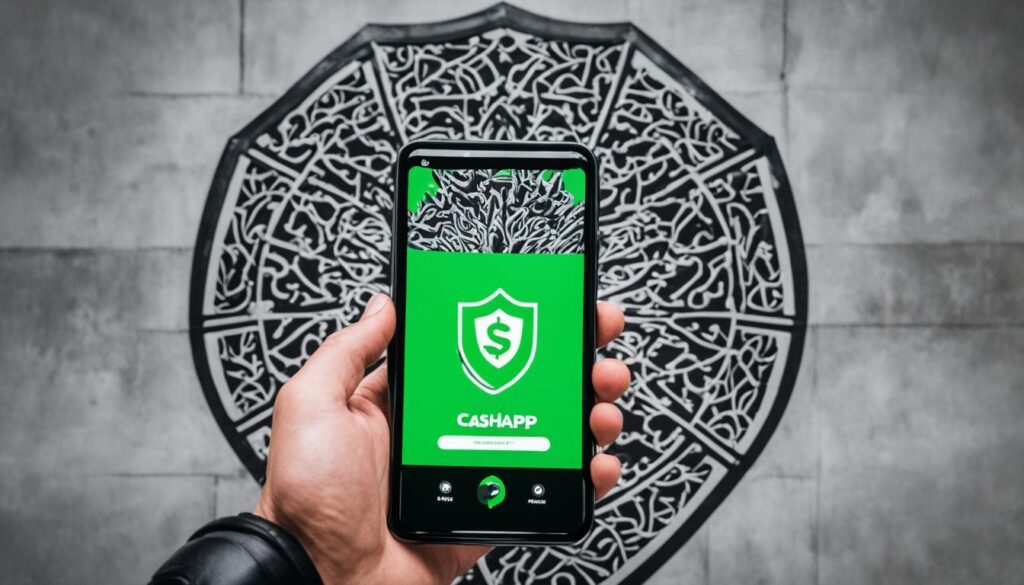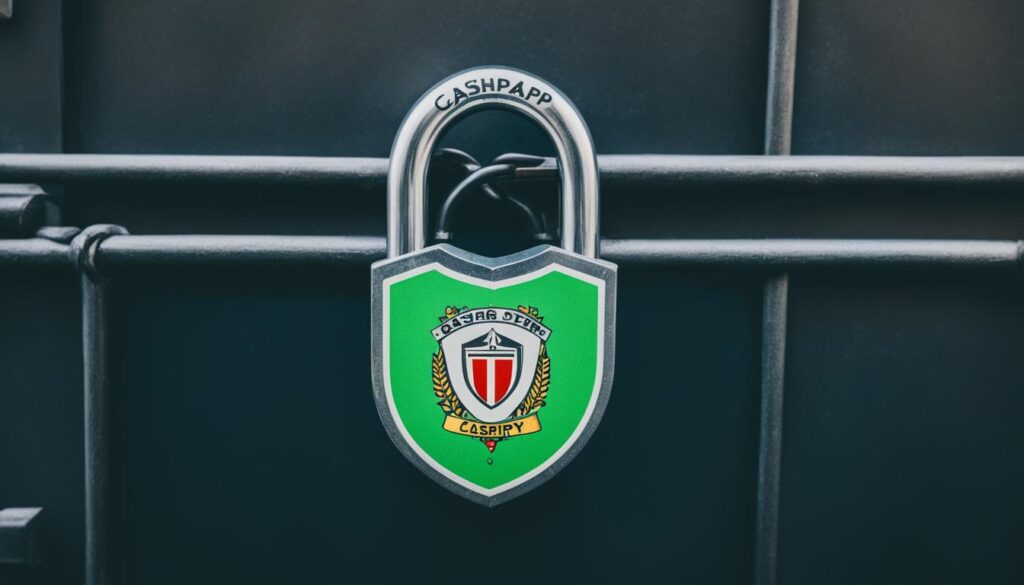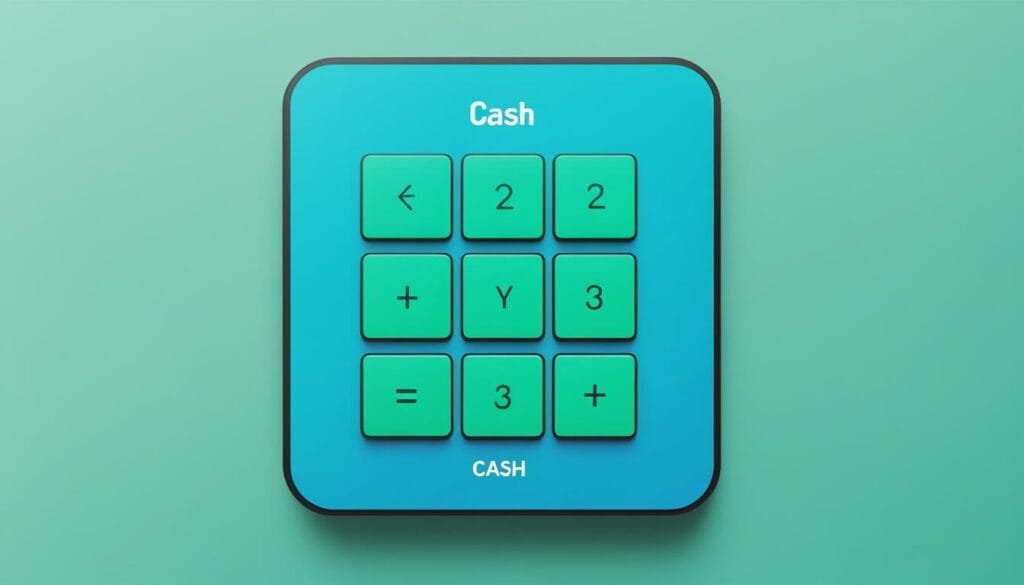As digital transactions become more ingrained in our daily exchanges, I often hear peers and readers alike ask, “is it safe to give someone your CashApp tag?” Cash App, the renowned peer-to-peer payment service, has made sending and receiving money as simple as typing in a unique identifier known as a $Cashtag. Despite the ease and convenience, this rises legitimate concerns regarding CashApp privacy and the potential breaches in secure CashApp transactions.
The skepticism isn’t unfounded. In an age where cyber threats loom large, I understand that maintaining CashApp security measures is not just preferable but essential. My professional insight leads me to say that sharing your $Cashtag can be safe, but with a hefty caveat: it revolves around trust and awareness. Especially if you’re dealing with people beyond your trusted circle, the imperative is to maintain vigilance against the sophisticated scams peppering the digital payment landscape.
Key Takeaways
- Sharing $Cashtags is generally safe, but trust is a key factor in determining when to share.
- Implementing two-factor authentication (2FA) can greatly enhance account security.
- Keep the Cash App up-to-date to utilize the latest security measures and features.
- Awareness about common scams can protect users from potential phishing attempts.
- Reporting suspicious activities promptly to Cash App and the FTC can help mitigate risks.
Understanding CashApp and Its Safety Features

As I delve into the intricacies of CashApp, it’s critical to recognize that the platform isn’t just about the convenience of sending and receiving funds; it’s also about the steadfast commitment to cashapp safety. The digital realm is fraught with potential security pitfalls, and as a CashApp user, protecting your cashapp account shouldn’t just be a priority—it should be a habit.
Peer-to-peer transactions have been redefined by CashApp, allowing individuals like us to manage finances with the ease of a few taps on our smartphones. But with great power comes great responsibility. To ensure cashapp user safety, one must understand the full spectrum of security measures available within the app.
How CashApp Works for Peer-to-Peer Transactions
The hallmark of CashApp’s design is the swift and straightforward process of money transfers. Users have individual $Cashtags—a distinctive identifier that’s akin to a social media username, but for financial interactions. This $Cashtag is your ticket to sending and receiving money securely, without the need to disclose sensitive personal information like bank account numbers. It’s a critical feature that encapsulates the notion of smart simplicity in the digital payments space.
Essential Security Measures Implemented by CashApp
Security isn’t just a feature; it’s a layered defense strategy woven into the very fabric of CashApp. For instance, encryption and fraud protection aren’t merely buzzwords—they’re active shields guarding every transaction. For those of us keen on cashapp tips for protecting your account, embracing options such as two-factor authentication (2FA), security locks, and instant notifications is an impregnable approach to defense.
The Role of $Cashtags in CashApp’s Ecosystem
The $Cashtag functions as more than just a user identifier—it’s a personal brand and a gateway to secure financial exchanges. Within the CashApp ecosystem, your $Cashtag is your identity, allowing you to engage in transactions while guarding against the prying eyes of cyber-threats. It’s a simple yet sophisticated tool in the quest for maintaining a fortified stance in our digital lives.
In conclusion, as we navigate the waters of the digital economy, keeping these cornerstone principles at the forefront of our usage can significantly solidify the fortress safeguarding our financial transactions. After all, in an age where digital prowess is paramount, maintaining a shield of vigilance around our financial tools is not just prudent—it’s imperative.
Is It Safe to Give Someone Your CashApp Tag?

Sharing your CashApp tag with familiar contacts is widely considered secure, reflecting cashapp safety principles. I recognize that the very design of CashApp tags protects personal information, fostering secure cashapp transactions. However, there are layers of complexity when it extends beyond your inner circle. Based on my understanding of cashapp security measures, it’s clear that vigilance is paramount when your tag steps into the public domain.
There’s an undeniable risk associated with sharing a CashApp tag with strangers. Scammers could misuse it, setting traps like fake deals or phishing attempts. In my experience, staying safe on CashApp demands scrutiny, especially of unexpected payments that may belie sinister agendas. It’s not just about recognizing red flags but also about erecting defenses through recommended security measures provided by CashApp.
- Review every payment request with a critical eye
- Never share personal data in response to unsolicited inquiries
- Consider the necessity of a transaction before proceeding
- Utilize CashApp’s security features, including two-factor authentication
Ultimately, your financial wellbeing on CashApp correlates directly to your precautionary actions and choices.
Best Practices for Secure CashApp Transactions
In my pursuit of secure CashApp transactions, I’ve discovered a variety of strategies to protect my account. Vigilance is paramount, and adopting the right practices is crucial. Let’s explore the actionable tips that can enhance CashApp privacy and security, ensuring peace of mind in our digital financial dealings.
Verifying Recipient Identity Before Making Payments
One important step I always take is confirming the identity of the person or business I’m looking to pay. This simple measure can make a significant difference in warding off fraudulent transactions. Since CashApp is occasionally targeted by scammers, taking the extra time to verify someone’s identity can help secure my funds.
Maintaining CashApp Privacy by Controlling $Cashtag Sharing
Protecting my account starts with controlling who can see my $Cashtag. By sharing it selectively and consciously, I prevent my CashApp from becoming a target for unsolicited payment requests and potential scams. I’ve learned to treat my $Cashtag as private information and only share it with parties I trust implicitly.
Enabling Two-Factor Authentication and Security Lock
For maximizing my defense against unauthorized access, I’ve activated two-factor authentication (2FA) and employed a security lock feature on my CashApp account. These cashapp security measures work in tandem to ensure that even if my login details fall into the wrong hands, my finances remain safely out of reach.
Regularly Updating the CashApp for Latest Security Patches
Furthermore, I make it a point to keep the CashApp updated on my devices. These updates often include the latest security patches which are critical in closing any vulnerabilities. By doing so, I maintain the strongest possible defense systems and keep my app fortified against emerging threats.
Here are some cashapp tips for protecting your account that I follow:
- Never share personal information like your sign-in code or other sensitive data over text or email.
- Always ensure that your linked email and mobile number are up-to-date.
- Log out of the CashApp when transactions are complete, especially on shared devices.
Putting these best practices into action, I consistently foster a secure environment for my transactions on CashApp.
Conclusion
In assessing whether it is safe to give someone your CashApp tag, context is king. My trust in the recipient dictates my willingness to share, reminding me that risk is often a product of circumstances. Sharing with trusted friends and business associates? Normally, this presents little issue. However, divulging the same information on social media or to an unknown requester spells potential for exploitation. It’s the disconcerting “what if” scenarios that remind me to be judicious with who gains insight into my financial conduits.
Assessing the Risk: When to Share Your CashApp Tag
Maintaining vigilance in CashApp user safety requires constant scrutiny of whom I share my $Cashtag with. While staying safe on CashApp is a shared responsibility between myself and the service, the ultimate decision to share rests on my shoulders. I equip myself with knowledge about common ploys, enabling a secure environment for my transactions. As with any financial tool, the power of discernment is a robust ally against fraud.
Immediate Actions to Take If Compromised on CashApp
The brisk chill of realizing my CashApp account might be compromised motivates immediate action. Notifying Cash App’s support, bolstering my security settings, and monitoring account activities become non-negotiable steps. In these situations, preemptive strikes such as changing passwords and enabling additional authentication features form the cornerstone of reclaiming control.
Final Verdict on CashApp Safety and User Responsibility
Reflecting on CashApp security measures, the hard truth is safety is not solely a service provider’s mandate; it is also a user obligation. A symbiotic effort to stay current with security updates, practice secure transactional habits, and keep a sharp eye for scams contributes to a fortified barrier against digital malfeasance. Ultimately, while Cash App offers an array of defenses, I stand as both the beneficiary and guardian of my financial sanctum.
FAQ
Is Sharing Your CashApp Tag Safe?
Yes, sharing your CashApp tag is generally safe when dealing with people you trust due to the lack of personal information tied to it. However, it is important to be cautious and avoid sharing it with strangers or on public platforms to reduce the risk of scams or unauthorized transactions.
How Does CashApp Work for Peer-to-Peer Transactions?
Cash App facilitates peer-to-peer transactions through unique identifiers known as $Cashtags. Users can send and receive money instantly by entering another person’s $Cashtag, email, or phone number, making the exchange of funds simple and efficient.
What Essential Security Measures Has CashApp Implemented?
CashApp has implemented several essential security measures including encryption, fraud protection, and optional security features like two-factor authentication (2FA), security locks, and instant notifications. These measures help ensure users have a safe transactional environment.
What is the Role of $Cashtags in CashApp’s Ecosystem?
$Cashtags serve as a unique identifier for CashApp users, allowing them to send and receive money without sharing personal information like their bank account or card details. It also allows for a level of branding or personalization for individuals or businesses using the platform.
How Can I Verify the Identity of a Recipient Before Making Payments?
To verify a recipient’s identity, confirm their $Cashtag and other associated information directly with them through a trusted communication method. Additionally, cross-reference this information with past transactions or third-party confirmations if necessary before sending any payments.
How Do I Maintain CashApp Privacy By Controlling $Cashtag Sharing?
To maintain CashApp privacy and protect your account, only share your $Cashtag with individuals or entities you trust. Be selective about who you give access to, and avoid posting it publicly on social media or websites where scammers can easily obtain it.
Why Should I Enable Two-Factor Authentication and Security Lock on CashApp?
Enabling two-factor authentication (2FA) adds an extra layer of security to your CashApp account by requiring a secondary verification step when logging in or making transactions. Similarly, setting up a security lock necessitates a passcode or biometric check before accessing the app, helping prevent unauthorized access.
Why is Regularly Updating the CashApp Important for Security?
Regularly updating the CashApp ensures you have the latest security patches and features implemented by the developers. These updates often include fixes for vulnerabilities that could be exploited by hackers and improvements to the app’s overall security infrastructure.
What Immediate Actions Should I Take If I Suspect My CashApp Account Is Compromised?
If you suspect your CashApp account is compromised, immediately change your password and security details. Enable any additional security measures available, such as two-factor authentication, and contact CashApp support for assistance. It’s also wise to monitor your financial statements for any unauthorized transactions.
What is the Final Verdict on CashApp Safety and User Responsibility?
CashApp has implemented robust security measures, but the safety of using the platform also depends heavily on user responsibility. It is crucial to engage in secure transactional practices, stay updated on security features, and remain vigilant to protect against potential scams and unauthorized access.
Are there any risks associated with sharing your CashApp tag when making payments?
When sharing your CashApp tag for making payments, there are potential risks involved. It’s essential to be cautious and only share your tag with trusted individuals to ensure safe payments with the PayPal app. Avoid sharing sensitive information with strangers or unverified sources to protect yourself from potential fraud or scams.

